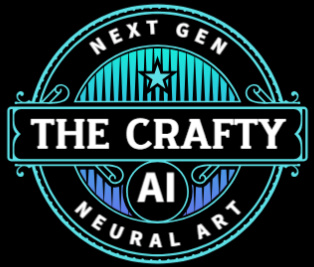www.thecraftyai.com
Google's Gemini AI assistant, launched in 2023, represents a significant leap in conversational AI, competing with models like ChatGPT and Grok. Designed to integrate seamlessly with Google's ecosystem, Gemini offers advanced capabilities in natural language processing, multimodal understanding, and personalized user experiences. This article explores Gemini's development, features, applications, and its role in shaping the future of AI assistants.
Development and Background
Google's foray into AI assistants began with Google Assistant in 2016, but Gemini marks a shift toward a more sophisticated, generative AI model. Built on Google's proprietary Gemini architecture, it leverages decades of research in machine learning, natural language processing (NLP), and neural networks. Unlike its predecessors, Gemini is a multimodal AI, capable of processing text, images, and potentially other data types, making it a versatile tool for diverse applications.
The Gemini project was developed under Google's AI division, with contributions from teams previously working on LaMDA and PaLM. It aims to address limitations in earlier models, such as context retention and factual accuracy, while competing with emerging AI assistants from OpenAI, xAI, and Anthropic. Google has emphasized ethical AI development, incorporating safeguards to mitigate biases and ensure responsible use.
Key Features
Multimodal Capabilities: Gemini can process and generate text, analyze images, and potentially handle other data formats like audio or video. This allows users to interact with the assistant in varied ways, such as uploading a photo for analysis or asking complex questions that combine visual and textual inputs.
Integration with Google Ecosystem: Gemini is deeply integrated with Google services like Search, Maps, and Workspace. For example, users can ask Gemini to plan a trip using Google Maps or draft emails in Gmail, streamlining workflows.
Conversational Depth: Gemini excels in maintaining context over long conversations, making it ideal for tasks requiring sustained interaction, such as brainstorming or tutoring.
Personalization: Leveraging Google's vast user data (with consent), Gemini tailors responses to individual preferences, enhancing user experience in areas like recommendations or task management.
Multilingual Support: Gemini supports numerous languages, reflecting Google's global user base, and can switch seamlessly between languages in a single conversation.
Applications
Gemini's versatility enables its use across various domains:
Personal Productivity: From drafting documents to scheduling meetings, Gemini enhances efficiency in Google Workspace.
Education: It serves as a tutor, explaining complex topics or generating practice questions.
Creative Work: Gemini assists in content creation, such as writing stories, generating marketing copy, or designing visual concepts.
Customer Support: Businesses use Gemini for automated, human-like customer interactions, reducing response times.
Accessibility: Its multimodal features aid users with disabilities, such as describing images for visually impaired individuals.
Performance and Limitations
Gemini performs exceptionally in tasks requiring reasoning, creativity, and contextual understanding. Benchmarks suggest it rivals or surpasses competitors in certain NLP tasks. However, limitations include occasional factual inaccuracies, a common challenge in generative AI, and reliance on internet connectivity for full functionality. Google continuously updates Gemini to address these issues, but users are advised to verify critical information.
Ethical Considerations
Google has implemented guidelines to ensure Gemini's responsible use, including filters for harmful content and mechanisms to reduce bias. However, concerns persist about data privacy, given Google's history of data-driven services. The company emphasizes transparency, allowing users to control data usage and opt out of personalization features.
Future Prospects
Gemini's roadmap includes deeper integration with augmented reality (AR) and Internet of Things (IoT) devices, potentially transforming how users interact with smart homes or wearable tech. Google is also exploring enterprise solutions, positioning Gemini as a competitor to specialized AI platforms. As AI regulation evolves, Google aims to align Gemini with global standards, ensuring compliance and user trust.
Conclusion
Google's Gemini AI assistant is a powerful, multifaceted tool that builds on the company's AI expertise. Its multimodal capabilities, seamless integration with Google services, and focus on personalization make it a standout in the AI assistant landscape. While challenges like accuracy and privacy remain, ongoing improvements position Gemini as a key player in the future of human-AI interaction. As Google continues to innovate, Gemini is poised to redefine how we engage with technology in our daily lives.
"Gemini" AI assistant by Google
© 2025. All rights reserved.

